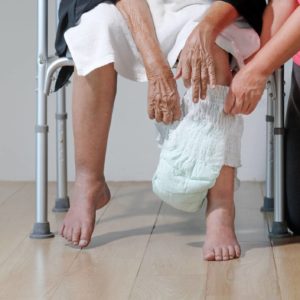People suffering from eating disorders can have an incredibly hard time dealing with and treating symptoms. While those who get help are putting themselves on a positive path towards immediate improvements that the body will respond fantastically, an understanding of some of the long-term effects can help someone with an eating disorder, and those closest to them, know what problems to look out for.
Here are some key points in helping understand potential long-term effects eating disorders can create.
Understand the physicality of an eating disorder
It is all too easy to think of an eating disorder as a mental condition when there is a huge physical aspect. Someone in the midst of recovery will face many hurdles as the body adapts and gets back to normal.
For example, someone suffering from anorexia for a long-time is at a high risk of developing severe problems even after recovery. Newbridge Health has a well-written guide breaking these areas down and the physical toll some of the following conditions can play if not looked after correctly:
- osteoporosis
- infertility
- arrhythmias
- anaemia
- peripheral neuropathy
Understand that treatment isn’t a solo venture

Support is critical when helping someone recover from an eating disorder, especially if close family and friends can see the illness from the point of view of someone with it. It is common to go through therapy while in recovery, and if family therapy is an option, it should be taken.
A therapist can help everyone see the broader issues, how everyone can support each other, and highlight what would be deemed as “difficult situations” that a family may not be picking up on.
Family therapy also tends to be carried out for at least a year, with sessions once to twice a month. This is done so that the person in recovery is afforded time for a long-term recovery path.
Understand that recovery isn’t like flicking a switch
Someone doesn’t just wake up one day and decide to have an eating disorder. The same goes for how they beat the illness.
Check-ups are frequent, as is Cognitive behavioural therapy (CBT), which helps patients understand what healthy food choices encompass. Recovery can take months or years for someone, especially if they’re dealing with physical symptoms.
Understand that there is no prevention

Immediate friends and family shouldn’t feel at fault when someone is diagnosed with an eating disorder. For many people, it’s a case of an illness hiding in plain sight. Sadly, there is no prevention, although there are warning signs other than noticing weight loss.
These can include:
- Noticing someone not wanting to eat in a public setting
- Someone lying about the amount the food they eat
- Someone over-exercising, especially close to meal-time
- Someone taking on an incredibly restrictive diet
- Knowing that someone binges foods, before making themselves sick or using dietary aids and laxatives frequently
Nutrition is important
Understanding the role your nutrition plays in leading a healthy life is essential. If you’d like advice on simple ways to improve your diet and how to change the relationship you have with certain foods, visit the nutrition section of the blog here.
You’ll find articles on everything from how drinking more tea can improve digestion to making healthy sourdough bread.




